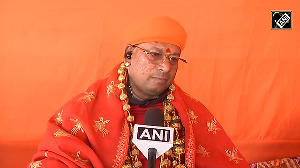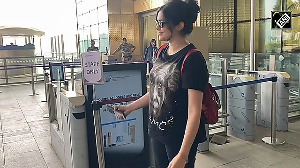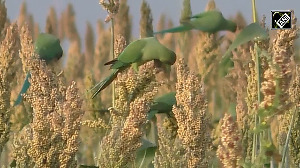The Supreme Court on Friday referred the issue of the practice of excommunication in the Dawoodi Bohra community to a larger nine-judge bench.

On October 11 last year, the Constitution bench reserved its order on whether to refer the plea on the issue to a larger bench for adjudication. It was considering if the Shiite Muslim community of a little over 10 lakh people spread across several countries has the right to excommunicate its dissenting members.
Today, a five-judge Constitution bench headed by Justice S K Kaul observed that a larger bench of nine judges is seized of the matter relating to the 2018 judgment allowing women and girls of all ages to enter Kerala's Sabarimala temple.
A nine-judge bench in January 2020 had made clear it was not hearing pleas seeking review of the 2018 judgment and would rather deal with larger issues, including the extent to which courts can intervene in "particular religious practices".
It had said it would only deal with the issues referred to it by a five-judge bench in the matter.
A five-judge bench, by a 3:2 majority, had earlier referred seven issues for consideration of the larger bench.
These included: the interplay between freedom of religion under Articles 25 and 26 of the Constitution; need to delineate the expression 'constitutional morality'; the extent to which courts can enquire into particular religious practices; meaning of sections of Hindus under Article 25; and whether 'essential religious practices' of denomination or a section thereof are protected under Article 26.
Before that, in September 2018, the apex court in a 4:1 majority verdict lifted the ban that prevented women and girls between the age of 10 and 50 years from entering the famous Ayyappa shrine in Sabarimala and held that the centuries old Hindu religious practice was illegal and unconstitutional.
On the issue of the Dawoodi Bohra community, the bench, also comprising Justices Sanjiv Khanna, A S Oka, Vikram Nath and J K Maheshwari, had said in October 2022, "The fact that this matter has been pending since 1986 troubles us... The options before us is to determine the limited issue that remains before us, or to refer it to the nine-judge bench."
The apex court had earlier been told the Bombay Prevention of Ex-communication Act, 1949 has been repealed and the Maharashtra Protection of People from Social Boycott (Prevention, Prohibition and Redressal) Act 2016 has come into force.
Section 3 of the 2016 Act refers to 16 types of social boycott of a member of the community and section 4 says social boycott is prohibited and its commission shall be an offence. The 16 types of social boycott includes expulsion of a member of a community.
According to the 2016 Act, a person convicted of the offence would be punished with imprisonment, which may extend to three years, or with fine which may extend to Rs 1 lakh or with both.
A five-judge Constitution bench of the apex court in 1962 ruled in the Sardar Syedna Taher Saifuddin Saheb vs The State of Bombay case that the Bombay Prevention of Excommunication Act, 1949 violated Article 26 (b) (Freedom to manage religious affairs) of the Constitution. It thereby protected the rights of the community to excommunicate its members.
In 1986, a petition was filed in the top court seeking reconsideration and overruling of the judgment delivered in 1962.











 © 2025
© 2025